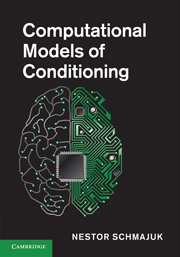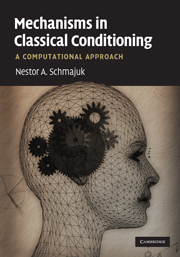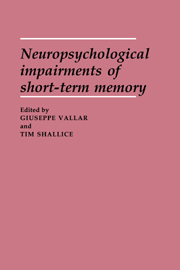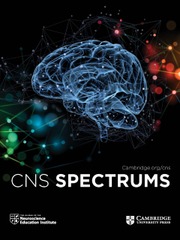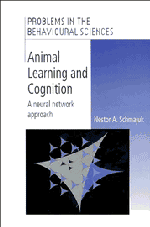Computational Models of Conditioning
$97.99 ( ) USD
- Author: Nestor Schmajuk, Duke University Medical Center, Durham
- Date Published: December 2010
- availability: This ISBN is for an eBook version which is distributed on our behalf by a third party.
- format: Adobe eBook Reader
- isbn: 9780511855214
Find out more about Cambridge eBooks
$
97.99 USD
( )
Adobe eBook Reader
Other available formats:
Hardback
Looking for an examination copy?
If you are interested in the title for your course we can consider offering an examination copy. To register your interest please contact [email protected] providing details of the course you are teaching.
-
Since first described, multiple properties of classical conditioning have been discovered, establishing the need for mathematical models to help explain the defining features. The mathematical complexity of the models puts our understanding of their workings beyond the ability of our intuitive thinking and makes computer simulations irreplaceable. The complexity of the models frequently results in function redundancy, a natural property of biologically evolved systems that is much desired in technologically designed products. Experts provide the latest advancements in the field and present detailed descriptions of how the models simulate conditioned behaviour and its physiological bases. It offers advanced students and researchers examples of how the models are used to analyse existing experimental results and design future experiments. This volume is of great interest to psychologists and neuroscientists, as well as computer scientists and engineers searching for ideas applicable to the design of robots that mimic animal behaviour.
Read more- The contributions from other authors provide a description of alternative conditioning models to uncover the 'big picture' in current modeling, providing a useful single source of information for current researchers in this area
- Conceptual descriptions of the models are provided, making the content accessible to readers who may not be able to assimilate complex mathematical data
- An analysis of how the differing models can be applied to experiments is provided, allowing advanced students and researchers to plan future experiments to research conditioning behaviour
Customer reviews
Not yet reviewed
Be the first to review
Review was not posted due to profanity
×Product details
- Date Published: December 2010
- format: Adobe eBook Reader
- isbn: 9780511855214
- contains: 74 b/w illus. 15 tables
- availability: This ISBN is for an eBook version which is distributed on our behalf by a third party.
Table of Contents
Introduction
1. Evolution of attention in learning John K. Kruschke and Richard A. Hullinger
2. The arguments of associations Justin A. Harris
3. The hybrid modeling approach to conditioning Michael E. Le Pelley
4. Within-compound associations: models and data James E. Witnauer and Ralph R. Miller
5. Associative modulation of US processing: implications for understanding of habituation Allan R. Wagner and Edgar H. Vogel
6. Attention, associations, and configurations in conditioning Nestor A. Schmajuk, Munir G. Kutlu, Joseph Dunsmoor and José A. Larrauri
7. Computer simulation of the cerebellum Michael D. Mauk
8. Towards a neural-network interpretation of the operant-respondent distinction José E. Burgos
Index.
Sorry, this resource is locked
Please register or sign in to request access. If you are having problems accessing these resources please email [email protected]
Register Sign in» Proceed
You are now leaving the Cambridge University Press website. Your eBook purchase and download will be completed by our partner www.ebooks.com. Please see the permission section of the www.ebooks.com catalogue page for details of the print & copy limits on our eBooks.
Continue ×Are you sure you want to delete your account?
This cannot be undone.
Thank you for your feedback which will help us improve our service.
If you requested a response, we will make sure to get back to you shortly.
×
